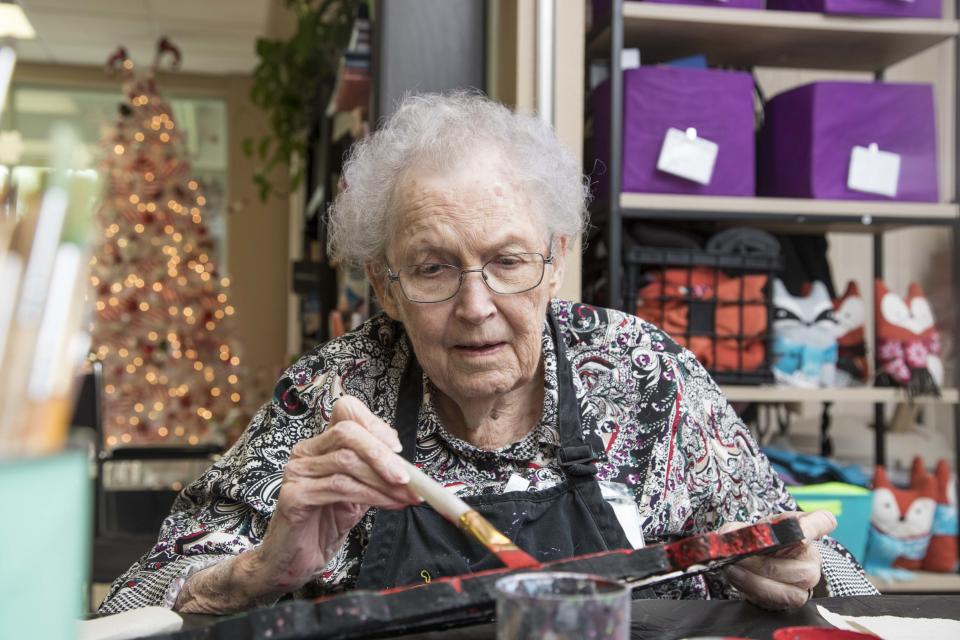Controversial Alzheimer's drug Aduhelm distracts from the more basic help patients need
FDA’s dismal approval process of the controversial Alzheimer’s drug Aduhelm has been a huge letdown for the millions in the country living with the disease.
Aduhelm was endorsed by the Food and Drug Administration via an unprecedented “accelerated approval” that overrode a unanimous “no” vote from its advisory committee in June. But the drug hasn’t been shown to reverse or significantly slow the disease, despite the misguided approval, and FDA has since backpedaled its approval of the exorbitant $56,000-a-year drug.
The approval process has triggered intense public scrutiny, an FDA investigation and even one by Congress and the Department of Health and Human Services. It has left Alzheimer’s patients and their families frustrated, fearful and understandably overwhelmed.
Just as troubling, the saga of Aduhelm also takes attention away from one of the core issues of Alzheimer’s treatment, the lack of nonpharmacological and other solutions to the disease.
Many lack comprehensive care or support
Our community of caregivers, health care workers and families of the 6 million Americans living with Alzheimer’s Disease and other related dementias (ADRD) must advocate for a comprehensive approach to care. This should begin at possible diagnosis and follow the disease all the way through its progression.
The absence of support begins when patients enter a residential care facility where our loved ones receive an average of 5 minutes of engagement per day, along with just 12 minutes of nursing care.
There, 1 in 6 residents with dementia will be misprescribed an antipsychotic, which, according to a 2015 study from the Program for Positive Aging at the University of Michigan, may produce side effects that actually worsen dementia behaviors, accelerate cognitive decline and increase mortality.
Even more objectionable is that families pay an average of $4,000 a month for this type of care, where workers are underpaid, overworked and often provided little to no training to carry out their duties.
Patients are often misdiagnosed, given the wrong medications and kept on medications that should be stopped. Until we have a cure, or until there is a drug that provides a true solution, there must be a focus on non-pharmacological interventions.
Engaging the creative side of the brain can help

Multiple studies show that if we can apply Maslow’s Hierarchy of Needs to each patient and fulfill those needs at a personalized level, we can reduce agitation, aggression and depression, safeguarding functionality at optimum levels regardless of a fading memory.
With this focus, we can offer patients a way to contribute and remain engaged. Allowing individuality, joy and personhood come into focus above confusion and agitation. While this may prove difficult at times for family caregivers, resources are, in fact, available to assist in providing enriching experiences for those with ADRD that don’t require admission into a full-time facility.
Many centers offer specialized day care for aging adults and employ workers with appropriate training to understand and address the needs that specialized memory care entails.
These programs provide a sense of purpose, empowerment and engagement for patients, while also providing family members a reprieve from the often-heavy responsibilities of caregiving. Typically, these centers focus on engaging the creative center of the brain – one of the last to be affected by the disease – through music, dance and art classes while delaying the loss of cognitive abilities.
With this type of intervention, many patients are able to increase levels of sufficiency, maintain independence for a longer period of time, and experience a higher quality of life. While it is not the traditional method of treating Alzheimer’s, it has been proven to have more positive effects than our current standard of care.
There are only a few of these facilities in the Valley, one of which I proudly serve as CEO, but we need more. Creative aging programs are a viable treatment option until we have a permanent cure, and yet we lack options for our senior community.
It is in the attention to individuality and quality of care that we are able to make a difference for our loved ones with Alzheimer’s.
Sherri Friend is president and CEO of Oakwood Creative Care, serving individuals with cognitive and physical impairments. Reach her at Sherri@oakwoodcreativecare.org.
This article originally appeared on Arizona Republic: Alzheimer's patients face bigger challenges than drug controversy

